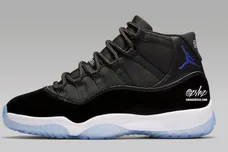Post Malone strives for homogeneity and teases much more in his sophomore outing, beerbongs & bentleys. Unlike Stoney, this album is a bold attempt at unifying form and content. The feminized rock star confronts the demands of his profession, finding a mocking tone for his dysphoria made all the more palatable by beat selection, a solution to his resigned state as a man belonging to the past.
The opening number “Paranoid” begins on a more destitute note. Listeners will likely attach meaning where they see fit. The narrative element of emptiness or the fear thereof sets the tone for the album’s general feeling of ambivalence. Malone has on several occasions offered his view of humanity, and to put it mildly: the “fun” in functional is all but spent on early admission. There are moments on beerbongs & bentleys where Post is playing to his strengths; unfortunately these instances have little appeal to hip hop audiences. To his credit, when freed of constraints Post Malone delivers a proviso for future endeavors. Songs like “Stay” are a welcome deviation from the monotony of his post-trap production, but is there a way to extrapolate songwriting credentials into condensed matter? A way to organically combine time-sensitive materials? beerbongs & bentleys tries to reconcile his personal objectives as an artist with the “demands of his profession.”
On “Spoil My Night,” Post Malone offers a confederacy of thoughts in line with the archetype he’s helped revitalize. The “rap” rockstar expressively communicates a lifestyle played out with diminished intensity. “I don't have much to say, I'll be out front,” he raps quite precariously. Both Post and Swae Lee find little difficulty using the same byline. What makes this collaboration particularly stick out on a sonic level is the activation of a second voice. Swae Lee is able in large part to coax his running mate into a different relaxed pattern, if only once.
Other artists are better reserved redefining realness. Post Malone’s main operative is his songwriting acumen. A simple four bar structure is, as always, grounds for Malone’s level of comfort. The efficacy of the formula is never once exhausted, because of non-verbal reasoning. Many of our listening pleasures crystalize in the womb before we press play. Beerbongs & bentleys is like an escape room for those of us teetering on the edge of acceptability. This album like his last, is made palatable across several fields. Songs like “Otherside,” bare the distinction of employing syncopation, a borrowed technique. In a moment’s notice we are saddled with other confused elements. It’s worth questioning whether Post Malone is better off choosing sides? Full immersion into his craft could galvanize his true potential as a songwriter. Such is his fate, as we’ve only witnessed his reverted “White Iverson” form. Personal vindication lies somewhere beneath the surface.
Where does his heart lay? Is there a mock-up somewhere in his dressing room that rips his itinerant status to pieces? All questions we have about “command,” haunt us at the onset of every listen. And yet, our reproach means nothing. Post Malone is an inevitable child-bearing accident that you learn to love. Tooth and grin aside, his work on beerbongs & bentleys is borne out of necessity. It’s something even I, an ardent supporter of historicity, have come to admit over time. The post-trap paradox is perfectly apprised to communicate a depressive “blue” state. The monotony of chairs at a table resonates fully. Post Malone’s homogenized sound is oddly enough, a place of resonance, depending on who you ask. The general rule is contained in his compliance with Gen-Z occupants who flood streaming services daily. They’ve created a new language of exoneration for their idols. Post Malone has been on both sides of the equation.
Post deploys simple truisms the way a person coping with repressed emotion rolls through their schedule. These moments, never fleeting, come to feel a lot like parody at first inspection. I’ve come to understand Malone’s use of ironic language as a means to a hurried end. Songs like “Rich & Sad” unify form and content by carrying forth the same droopy effects. “Zack And Codeine” for one is an example of this dilution on proven grounds. Post Malone gets away with generalization by mirroring existing tropes that have found success. “Better Now” like “Rich & Sad” before it, is a breakup song that tackles everything but the emotional release.
On a level of production, the album is seamless. Post is able to recruit a team consistent with his early production. FKi who produced his breakout hit “White Iverson” is noticeably absent on beerbongs & bentleys. Post Malone, narratively speaking, teases experimentation. Rap fans are ready dismiss the notion he is knowingly disdainful of the lane he occupies as a White artist doing Black music. The simple caveat that his music distinguish itself while adhering to guidelines set before him. On “Psycho,” the second single tied to the project, Ty Dolla $ign creates an exigence for different musings, resulting in a near-perfect pop-rap hybrid. Leading in with “The AP going psycho,” the guest relates his trust issues over the sense of paranoia permeating the record. The success here hinges on both singers’ ability to retain the sweetness of production. The parodic play continues as in previous attempts.
Another particularly strong effort,“Ball for Me,” is pure contagion. The wild pitches Post Malone makes on more solemn records are easier to ascertain in this reprisal of his role. Nicki Minaj's guest verse is an affirmation of good vibration in a sea of blurred-amnesia. Malone’s syncopated “oohs” create a vertebrae for Nicki’s compensatory verse. This is the “itty bitty piggy” we were expecting in droves, when she marked her return. Instead of hiding behind previously enjoyed tropes, Nicki dives into her wacky canon of references. Lines like "Coulda been a seamstress, still wouldn't cut him slack," are far more cunning if put into context.
All in all, the album successfully demonstrates ordinance. The two initial offerings, “Rockstar” and “Psycho” were honest descriptors of the album ahead of time, and measure up as imperfect models of consistency. For all his faults, Malone was able to find contingency on a longer project. Stoney was him quickly capitalizing on his meteoric rise. Beerbongs & bentleys is him keeping his buoy afloat. Unfortunately of all the resources at his disposal, Malone seems hell bent on staying alive and out of trouble. Is beerbongs & bentleys rich enough to be listened to more than once?
I believe so.









